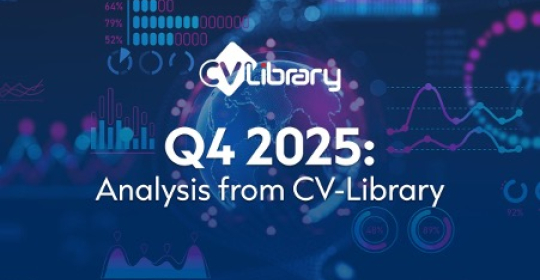- Latest ManpowerGroup Employment Outlook Survey shows high demand for younger workers going into Q3, with regional demand ahead of London
- Ninety-six percent (96%) of employers surveyed also report challenges engaging workers with less than ten years in work, including Gen Z and younger Millennials
- With around three million economically inactive young people in the UK, new approaches are needed to get under-25s into work.
The latest ManpowerGroup Employment Outlook Survey reveals a nuanced UK hiring landscape for Q3, with positive-yet-cautious hiring intent evident amongst the Survey’s 2,100 respondents. Despite a three-percentage point decrease, quarter-on-quarter (QoQ), the UK’s Net Employment Outlook remains at a healthy +20%. This places the UK +3% above the Q3 EMEA regional Outlook of 19%, but behind the global Outlook of +22%.
With UK youth unemployment rates more than two times the national average (and rising), it’s encouraging to see that close to half of UK managers surveyed (45%) indicate they intend to hire workers aged 25 and under during the July - September quarter, with ‘under-25’ hiring intent in Northern Ireland (53%), Scotland (50%), Wales (49%), East Midlands (49%), Yorkshire & Humberside (48%) and London (47%) all particularly strong.
Ninety-six percent (96%) of UK employers surveyed, however, also report challenges engaging employees with less than ten years in work. Survey respondents report difficulty meeting work-life balance expectations and maintaining employee motivation, alongside a perception that Gen Z and younger Millennials don’t have the right skills. To address this, managers indicate their top three engagement strategies for Q3 include: (1) Offering work hours flexibility (71%); (2) Placing emphasis on overall wellbeing (70%); and (3) Improving technology tools (69%).
“The stereotypical view that Gen Z lacks a proper work ethic miscasts a generation otherwise keen to acquire skills and utilise new technology in a rapidly evolving labour market – albeit on their terms,” says Michael Stull, Managing Director, ManpowerGroup UK. “With around three million young people economically inactive in the UK, and a further half a million registered unemployed, the strong appetite to hire from this age group next quarter can be turned into a meaningful opportunity.”
Gen Z’s desire to use the latest technology is telling. With a little over half of Q3 Survey respondents collectively self-categorising themselves as either ‘early adopters’ (20%) or ‘current adopters’ (31%) of generative AI tools like ChatGPT, Gemini or DALL.E[1], AI-enabled technologies are already impacting the UK labour market. Because of these new technologies, there’s a high probability that Gen Z will be the last generation to work ‘full-time’ (at least as we currently conceive the notion of ‘work’). Alongside important intergenerational equity[2] considerations to do with opportunity, sustainability and future prosperity for all age groups active across the current labour market, the question arises: What are the developmental ‘gives and gets’ needed between Gen Z and employers to form a new-look ‘pact’ with the capacity to deliver appropriate training, professional and vocational development opportunities? The aims being: (1) to get more younger people into work; (2) better address long-evident skill gaps; and (3) ensure future prosperity for the UK labour market generally and Gen Z specifically.
Stull adds: “Employers who address intergenerational opportunities and offer the flexibility, development and purpose Gen Z need to thrive will potentially unlock a workforce ready and able to learn the skills needed to adapt to a rapidly evolving tech, green and employment landscape. This pivot towards ‘lifelong learning’ will require a new, co-ordinated effort between businesses, education and training institutions as well as government to implement. Otherwise millions of employees risk being left behind as technology evolves.
“The best way to unlock the future prosperity of the country is to unlock the potential of its people. With 80% of employers reporting difficulty finding talent with the skills they need – up from 14% ten years ago[3] – this evolution is already affecting employers’ ability to hire and grow. It’s particularly important that we get this right for Gen Z, given they will make up around 60% of the global workforce by 2030[4].”
[1] An ‘early adopter’ was defined in the Q3 Survey as ‘we are fully leveraging these technologies’; ‘current adopters’ as ‘elements of our processes currently use these technologies.’
[2] “Duties To The Future Through An Intergenerational
Equity Lens”, United Nations System Chief Executives Board for Coordination, 2023: https://unsceb.org/sites/default/files/2023-02/HLCP%20Duties%20to%20the%20Future%20discussion%20paper%20%28public%29.pdf
[3] “ManpowerGroup Talent Shortage Survey 2024, United Kingdom” ManpowerGroup 2024: https://www.manpowergroup.co.uk/the-word-on-work/b_talent-shortage-survey-2024/
[4] “The Age of Adaptability, Leading a Modern, Sustainable Workforce” ManpowerGroup 2024: https://workforce-resources.manpowergroup.com/white-papers/the-age-of-adaptability






